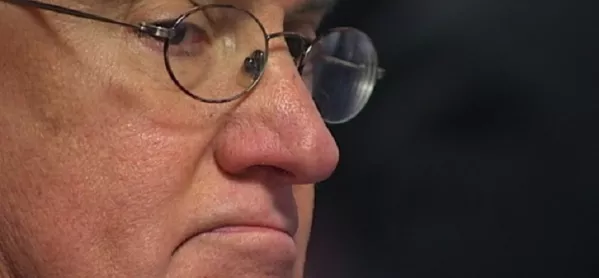Wilshaw: teachers exhausted by ‘one-size-fits-all’ comprehensives
Share
Wilshaw: teachers exhausted by ‘one-size-fits-all’ comprehensives
https://www.tes.com/magazine/archive/wilshaw-teachers-exhausted-one-size-fits-all-comprehensives

Teachers are becoming exhausted because they are expected to do “too many things”, Ofsted’s chief inspector will say in a speech today that warns of the dangers of a “one-size-fits-all” comprehensive system.
Sir Michael Wilshaw will call for the school system to be structured to allow teachers to concentrate on what they are good at - teaching - rather than being asked to act as “behaviour experts, playground patrollers and outreach workers”.
Speaking at an event organised by the thinktank CentreForum this evening, Sir Michael will warn that one of the disadvantages of comprehensive schools is that they ask too much of their teaching staff.
While he will make clear he is not arguing for a return to a selective education, the former head will say the “one-size-fits-all” approach to education by comprehensive schools was failing both teachers and students.
“Teachers, like everyone else, are rarely good at everything,” he will say. “Yet many comprehensives treat them as if they are. In smaller secondaries, with limited numbers of staff, they have no choice but to do this.
“Teachers may be required to teach a high-flying sixth form group in one lesson and a low-ability Year 7 group in the next. On top of this, they are expected to be pastoral tutors, behaviour experts, playground patrollers and outreach workers. It’s no wonder they become exhausted. It isn’t good for them, the students or the school.”
But by joining academy trusts, nurseries, primaries, secondaries and post-16 institutions could work more closely together and, as a consequence, allow teachers to specialise and develop professionally, Sir Michael will argue.
He will also warn that the “one-size-fits-all” education system on offer to less academic students at 16 is “inadequate at best and non-existent at worst”.
Teenagers who fail to gain at least a C grade in their English and maths GCSEs “make little or no progress” in college two years later.
“There is no good reason why the vast majority of pupils shouldn’t have mastered basic maths and English at primary and a grade 5 at GCSE,” he will say.
“However, we should never forget the minority who will never do so, nor the larger number who may pass but who do not wish to pursue a wholly academic path. They too deserve an education worthy of the name. The country cannot continue to fail half its future.”
You've reached your limit of free articles this month. Subscribe for £1 per month for three months and get: